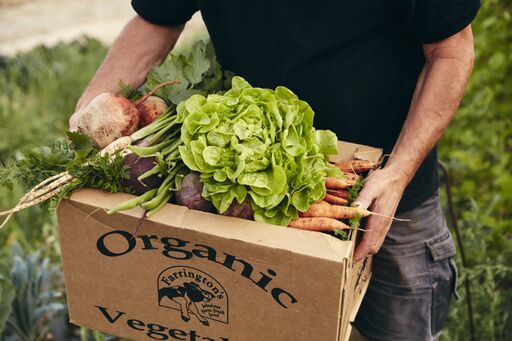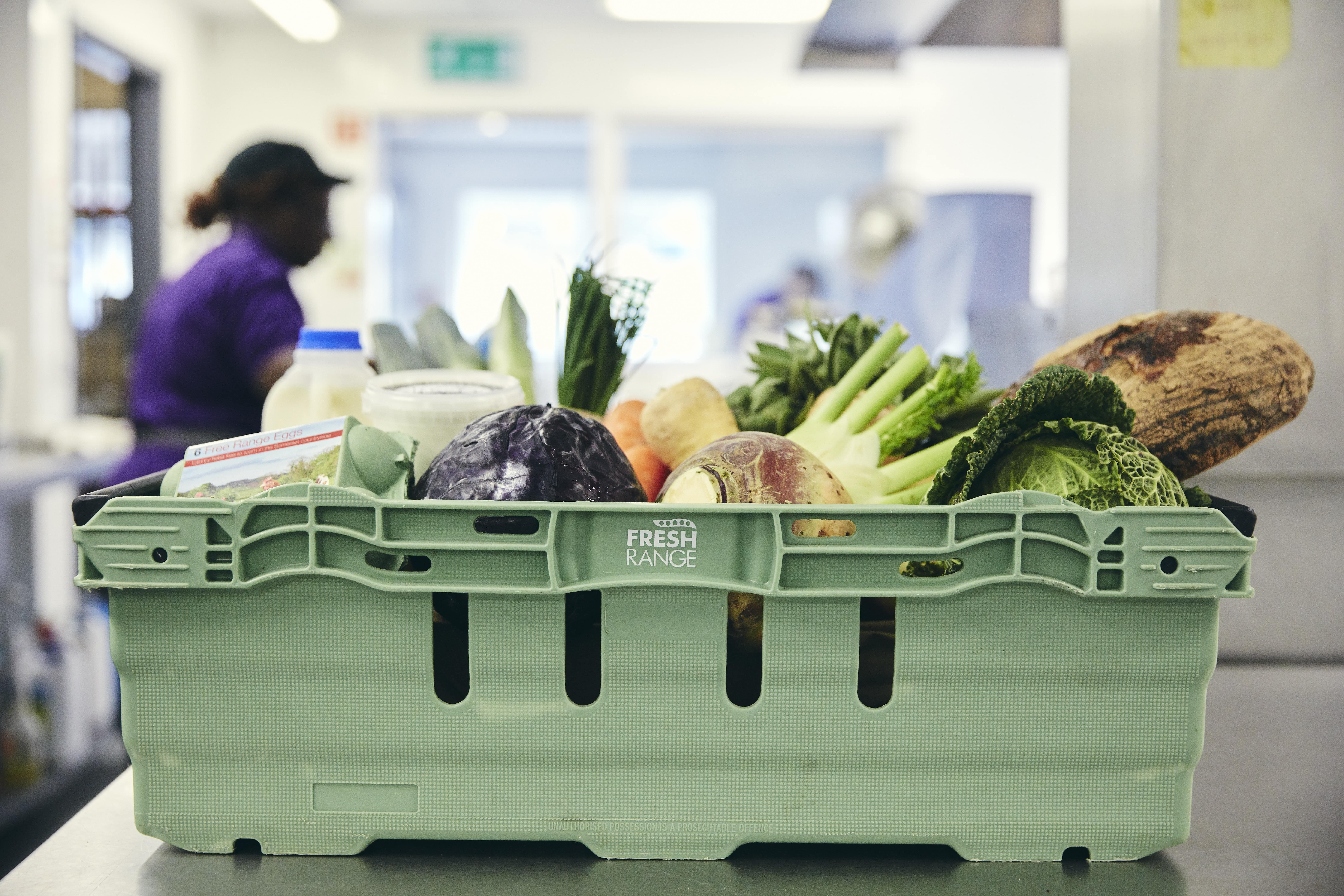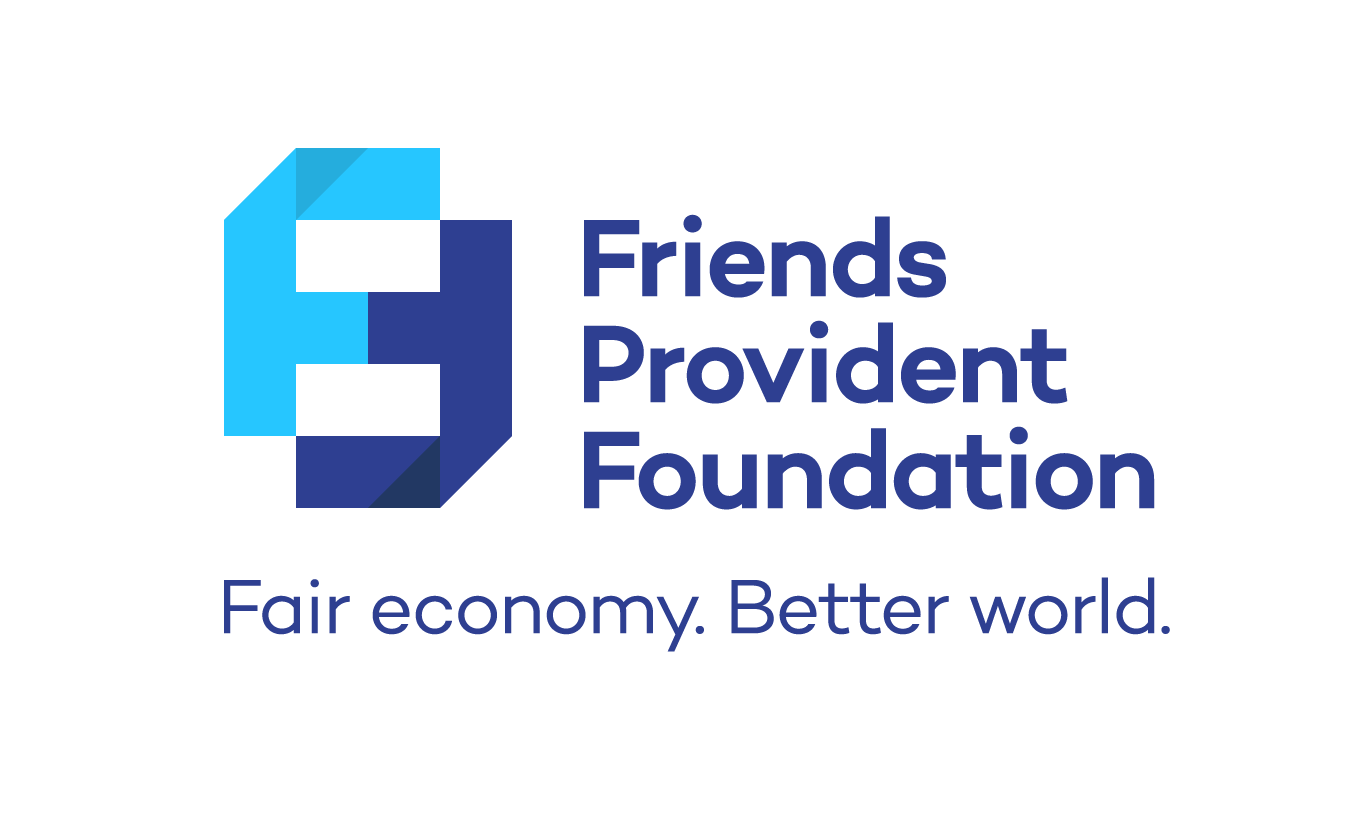
- Soil Association
- Causes and campaigns
- Food security
- Shortening supply chains
- Using tech to get fresh food in schools

Using tech to get fresh food in schools
How can technology help get more fresh, local food on the menu in schools?
Fresh-range may have the answer. They’re a technology and distribution company that sources local and sustainable food direct from producers.
Their online sales platform provides a link between producers and caterers - making it easier to keep supply chains short, and food fresh and local.
Sourcing more regional food can help:
- Increase food security
- Boost the regional food economy and
- Increase customer access to fresh and delicious food
Challenges with sourcing regional food in the public sector
Public sector procurement contracts tend to be rigid, fixed-term agreements. Once a contract has been let, no other food suppliers can be used for the period of the contract.
These contracts often prevent smaller, local businesses from entering public sector markets. They are frozen out as their smaller product ranges and lower quantities aren’t usually big enough to fill all the contract’s requirements.
Meanwhile, the larger corporations who win the contracts often have to arrange for produce to be driven across the country to fulfil their contractual requirements. Even if a small-scale local farmer is growing what they need in the field next door!
On the other hand, there can be challenges with sourcing all food locally; lots of small deliveries of food to schools by multiple local producers can be inefficient, timely and increase delivery costs. There can also be issues associated with sourcing from local producers and SME’s such as volumes and continuity of supply.
An approach that aggregates supply of food through regional hubs, and enables a mix of local producers and large suppliers to fulfil contracts would provide a solution that enables access for smaller suppliers whilst ensuring volumes for larger orders are met.
Using technology to supply local food to schools
Fresh-range started out as an online retailer for shoppers looking to buy locally and ethically sourced food. Their online store is now available to all of mainland UK, and their technology platform proved to be adaptable, and able to handle more complex purchasing options – like those in public procurement.
So, Fresh–range was awarded a contract with Bath & North East Somerset Council to pilot an innovative way of supplying more local and organic food to 42 schools. It’s called ‘dynamic food procurement’.
Dynamic food procurement involves using technology platforms to organise the collection of fresh food and drink from lots of local producers, which can then be delivered to local kitchens and schools.
Fresh-range’s technology platform links the council, suppliers and end users. Caterers are able to choose produce from a range of local suppliers to ensure short, efficient supply chains. Large suppliers were also part of the contract to ensure volumes for larger orders to be met.

Growers and producers can join and leave the contract at any time and supply even small quantities of produce. This provides smaller growers with access to public sector markets, which they have historically struggled to reach.
Using the dynamic food procurement model, the pilot schools found that they had more flexibility and enjoyed lots of benefits like:
- A significant and instant reduction in carbon emissions. The number of food deliveries a week was reduced and, with Fresh-Range’s hub in the local area, less mileage was used to reach schools.
- Saved time. Using a single online ordering system reduced the time school cooks spent placing orders with multiple suppliers.
- Potential cost savings. The system prompts caterers to use more cost-effective alternatives where possible, like fresh seasonal foods currently in a glut.
- Support for local suppliers. Smaller suppliers with just one or two products e.g. carrots and kale, could enter their products, at the volumes they had available. The flexibility of the contract also meant that producers could flexibly enter and remove product listings in line with seasonal availability.
Using Fresh-range’s platform, the schools source more fresh and local food and lower their carbon footprint, all while supporting some fantastic local businesses.

Plans for the future
Crown Commercial Services are putting in place a model for dynamic food procurement on a national scale, which will go live towards the end of 2020 in the pilot area of the South West of England focusing on fresh meat, fruit and vegetables.
The year-long pilot will be evaluated and then rolled out across the whole of the UK. Rather than being counted as one area, the UK will be split into 14-17 areas. This will enable smaller, local suppliers, who perhaps cannot supply a massive contract, to be involved, but will also allow larger suppliers to be involved where scale of demand requires them (e.g. HM Prisons).
It is expected that this arrangement will transform public sector food procurement through significantly shortening supply chains, ensuring - food quality and provenance, greater visibility and cost control, carbon emission reduction and support for suppliers local to the area.
-
Shortening Supply Chains: Roads to Regional Resilience
Read our new report to find out more about opportunities to shorten supply chains
Read the Report
Our thanks to Friends Provident Foundation, who kindly funded a project carried out by the Soil Association to explore possibilities to shorten in supply chains.

In this section...



